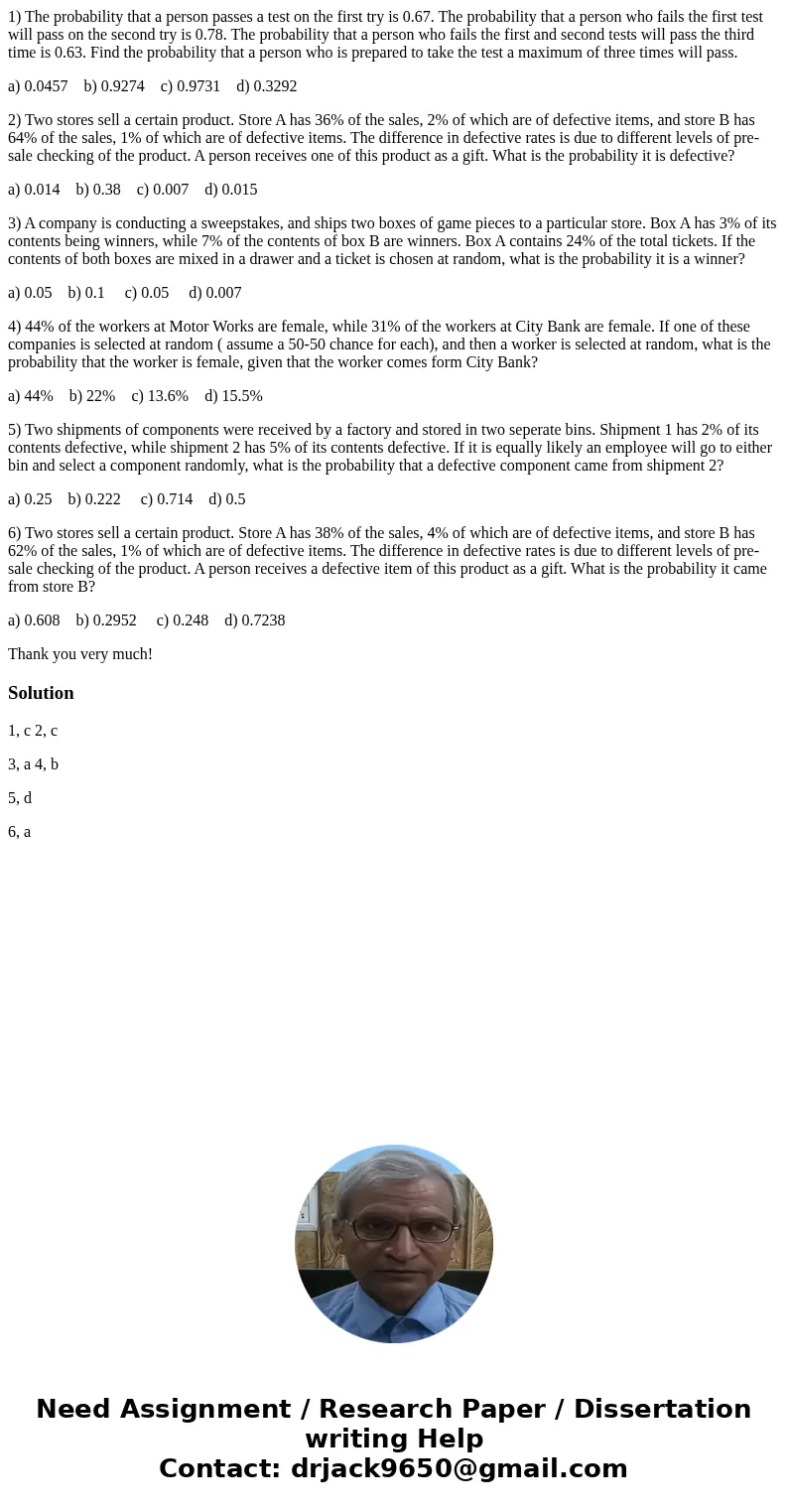1 The probability that a person passes a test on the first t
1) The probability that a person passes a test on the first try is 0.67. The probability that a person who fails the first test will pass on the second try is 0.78. The probability that a person who fails the first and second tests will pass the third time is 0.63. Find the probability that a person who is prepared to take the test a maximum of three times will pass.
a) 0.0457 b) 0.9274 c) 0.9731 d) 0.3292
2) Two stores sell a certain product. Store A has 36% of the sales, 2% of which are of defective items, and store B has 64% of the sales, 1% of which are of defective items. The difference in defective rates is due to different levels of pre-sale checking of the product. A person receives one of this product as a gift. What is the probability it is defective?
a) 0.014 b) 0.38 c) 0.007 d) 0.015
3) A company is conducting a sweepstakes, and ships two boxes of game pieces to a particular store. Box A has 3% of its contents being winners, while 7% of the contents of box B are winners. Box A contains 24% of the total tickets. If the contents of both boxes are mixed in a drawer and a ticket is chosen at random, what is the probability it is a winner?
a) 0.05 b) 0.1 c) 0.05 d) 0.007
4) 44% of the workers at Motor Works are female, while 31% of the workers at City Bank are female. If one of these companies is selected at random ( assume a 50-50 chance for each), and then a worker is selected at random, what is the probability that the worker is female, given that the worker comes form City Bank?
a) 44% b) 22% c) 13.6% d) 15.5%
5) Two shipments of components were received by a factory and stored in two seperate bins. Shipment 1 has 2% of its contents defective, while shipment 2 has 5% of its contents defective. If it is equally likely an employee will go to either bin and select a component randomly, what is the probability that a defective component came from shipment 2?
a) 0.25 b) 0.222 c) 0.714 d) 0.5
6) Two stores sell a certain product. Store A has 38% of the sales, 4% of which are of defective items, and store B has 62% of the sales, 1% of which are of defective items. The difference in defective rates is due to different levels of pre-sale checking of the product. A person receives a defective item of this product as a gift. What is the probability it came from store B?
a) 0.608 b) 0.2952 c) 0.248 d) 0.7238
Thank you very much!
Solution
1, c 2, c
3, a 4, b
5, d
6, a

 Homework Sourse
Homework Sourse